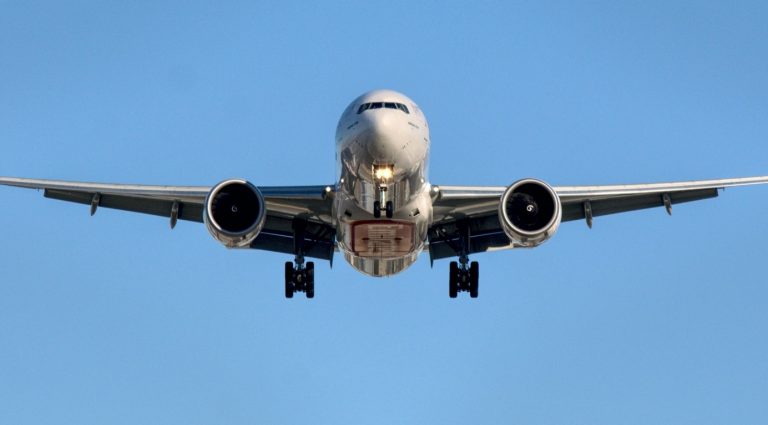Air accidents are more common among unprofitable and poorly managed airlines, new Concordia research shows

The airline industry is not for the faint of heart. Margins can be slim and external shocks like the COVID-19 pandemic or gas price fluctuations can be disruptive. And mishaps always balloon in the public imagination, fairly or not.
The aviation sector is also among the most tightly regulated industries, with strict standards in place governing training, maintenance and equipment. Airlines are expected to prioritize passenger safety. Bad things can happen when they don’t.
In a new study of corporate governance and airline safety published in the journal Aircraft Engineering and Aerospace Technology, the authors write that there is a clear relationship between an airline’s financial health and management and the propensity for its aircraft to be involved in an accident. The majority of accidents are attributed to pilot error; however, the researchers say, the blame very often lies in the airline’s board room.
“We found that companies that are cash poor, less profitable and poorly managed do shirk on safety investments and ultimately have a higher rate of accidents,” says Thomas Walker, a professor of finance at the John Molson School of Business and one of the paper’s authors.
“Governments are very strict about maintenance, but companies do have a choice if they want to fly an airplane fleet longer, the effort they put into pilot training and the quality of the pilots they hire. There are a lot of variables, and things can go wrong in the end.”
 Thomas Walker: “We found that companies that are cash poor, less profitable and poorly managed ultimately have a higher rate of accidents.”
Thomas Walker: “We found that companies that are cash poor, less profitable and poorly managed ultimately have a higher rate of accidents.”
Safety begins at the board level
The researchers note that researching airline safety records can be challenging. First, there are (fortunately) relatively few accidents to study. Second, data on airline governance and financial health, especially in an international context, requires tedious collection.
For this study, the researchers looked at an international sample of accidents that occurred between 1950 and 2019.
They found that 53 per cent of all accidents were attributed to pilot error alone, while mechanical failure accounted for a further 20 per cent. Approximately 10 per cent were blamed on meteorological conditions.
These figures do not tell the whole story, according to the researchers. They argue that pilot error can be attributed to a broad range of influences, including insufficient supervision, inappropriate planning, inadequate training, willful violation of rules and even corruption.
Airplane manufacturer errors and lack of experienced ground crews can account for mechanical failures. Finally, adverse weather can be a problem, but good training, experience and state-of the-art equipment can reduce accident risk in bad weather conditions, suggesting an interlinkage among the underlying factors behind an accident.
In total, an estimated 75 per cent of all accidents can be linked, either directly or indirectly, to organizational factors within a company’s control.
Additionally, the researchers found that the CEO and the composition of the board affect an airline’s financial health and, by extension, its propensity for accidents.
‘Oversight and high-quality training are incredibly important’
In a second study in which they look at a sample of 372 airlines operating in 72 countries from 1990 to 2016, the researchers found that the higher the quality of an airline’s governance, the lower its accident propensity.
Governance quality was linked to several factors: the qualifications of board members, how busy directors were and how diverse the board members were in terms of their work experience, age and gender. Board diversity was associated with a lower propensity for accidents.
The tenure of the CEO also influenced safety, as did their independence from the board. Generally, the length of a CEO’s tenure was positively associated with fewer accidents — although a CEO nearing retirement was more likely to be associated with less strict oversight and a higher risk of accidents.
Finally, the researchers found that airlines based in countries with a strong rule of law, including law enforcement and stringent legal regulations, and better air transport infrastructure had better safety performances.
Walker says he hopes the study will urge airlines and regulators to improve their safety standards, be more aware of managerial and financial factors affecting accident risk and identify possible red flags earlier.
“Oversight for airlines and airplane manufacturers and high-quality training are incredibly important, especially in this industry.”
Hamed Khadivar at UQÀM and John Molson research assistant Miles Murphy contributed to the study.
Read the cited paper: “Reducing airline accident risk and saving lives: financial health, corporate governance, and aviation safety.”


